Old Fashioned Homemaking Skills for the Modern Homemaker
In this post we’ll look at several old-fashioned homemaking skills that are still valid, perhaps even essential to even the modern homemaker. These skills and practices can enrich your daily life, reduce overwhelm, and make your home a place you love to live in.

When we think of the vocation of “homemaker” in our modern culture, it doesn’t usually carry the same weight of respect and dignity that it once did. Perhaps because technology like microwaves, dishwashers, robotic vacuums, pre-packaged foods, and take-out have made the vocation of homemaker feel less necessary. It is less common now for your average woman to have a working knowledge of basic homemaking skills.
Especially since the pandemic, our homes have become more central to our everyday lives. Our culture is experiencing a shift where more and more people are working from home. This makes the cultivation of our homes, our “homemaking,” even more important. Maybe it’s time to brush up on some of the skills we’ve been ignoring. Let’s take a look at these old fashioned homemaking skills together.
(As an Amazon Associate I earn from qualifying purchases. This means that if you purchase an item via a link on my website I earn a small commission at no extra cost to you.)
Baking

Learning to bake is a valuable homemaking skill; it makes it possible to make your own bread, pancakes, biscuits, rolls, desserts, you name it. Baking your own bread gives you a healthier option for everyday consumption while saving you money. And there is very little hands-on time!
While I enjoy mixing and kneading my bread by hand, you can use stand mixers or even bread machines to do most of the work for you. If learning to bake is intimidating for you, a bread machine can be a great place to start.
I have been grateful to have this skill over the past few years as I developed a gluten intolerance. I have spent time converting favorite recipes to sourdough versions in order to make it possible for me to continue eating my favorite foods. Baking makes it possible to specialize the foods you make to your own family’s needs without spending extra money.
For a great everyday sandwich bread recipe, check out my post on Sourdough Farmhouse White Bread!
Cooking from Scratch

Cooking from scratch can sound very intimidating, especially to someone who has little to no cooking experience. But it doesn’t have to be! Cooking from scratch is creating meals from whole ingredients and avoiding the use of processed or prepared foods.
Just because a meal is from scratch doesn’t mean it has to be complicated! This may even be one of the most important homemaking skills I’ll mention, as it’s central to providing your family with good nutrition.
There is nothing wrong with cooking fancy meals with lots of ingredients, especially if experimenting with different flavors and cuisines is fun for you.
But if you’re a busy mom who just wants to get a basic healthy meal on the table every night, simple meals are the way to go. It can be as simple as cutting up a few onions and potatoes and putting them in a roasting pan, then putting a whole chicken on top and sprinkling everything with salt and pepper and oil before baking. It takes very little know-how and gives you a delicious family meal in under an hour. Voila!
My favorite way to embrace old-fashioned living in the kitchen is by using and loving my cast-iron pans every day. I used to use non-stick teflon pans in my kitchen because I didn’t want my food to stick, and I couldn’t think of a better solution.
In my efforts to make our family’s consumption as healthy as possible, I decided that it was time to give teflon its notice. I purchased a couple of standard sized cast-iron pans and did some research on how to care for them and keep their non-stick coating. I haven’t stopped using them since!
Related Post: How to Remove Rust from Cast Iron Pans
Meal Planning
I remember seeing a meme once that said, “The hardest thing about being an adult is deciding what to eat for dinner every day for the rest of your life.” I’m pretty sure this was written by my long-lost twin.
Trying to decide what to feed my family is the source of probably half of the stress in my life! I still struggle with meal planning, but it has made things easier. I spend less on groceries, and I don’t get a panic attack at 4pm when it’s time to make…???? What?? What do I make? Scrambled eggs and toast again, kids.
Instead of scrambled eggs every night, meal planning helps me provide more varied nutritional meals that I know my family likes to eat. Don’t feel pressure to make it complicated. If you have picky kids, there’s no reason you can’t rotate the same five meals they’ll actually eat until they grow out of it.
There’s no reason those meals can’t be quick to make with few ingredients. (And there’s no reason one of those meals can’t be scrambled eggs!) Sometimes the key here is taking the pressure off.
We’re not all Julia Child. And if you are a girl after Julia Child’s heart, more power to you! That’s a great skill that can help you fit more of those fancy meals into your regular rotation. 🙂
For more inspiration and ideas for meal planning, check out my post on Common Dinner Meals.
Learn how to cook without a meal plan
Now hang on, hang on. Didn’t you just tell me to plan my meals???
Well, yes I did, and I think that’s really helpful. But as a Type A recipe follower for most of my life, I have learned to appreciate the ability to open my fridge when I didn’t have a plan and scrap together a meal with what’s there. I couldn’t do this for probably the first ten years of my marriage, and I’m still not great at it.
In more recent months, though, I have been researching what goes with what, and I’ve gotten brave enough to toss random herbs and seasonings into dishes to see what tastes good.
Even if you’re a meal planner most of the time, let’s remember that sometimes plans fail, and sometimes we don’t get around to planning at all. When that happens, being able to toss something together without a plan is really valuable!
Learn what veggies pair well together, what herbs and seasonings complement which meats and veggies, and try putting some basic ingredients together without a recipe. You might just discover something your family loves that you made up yourself!
Gardening
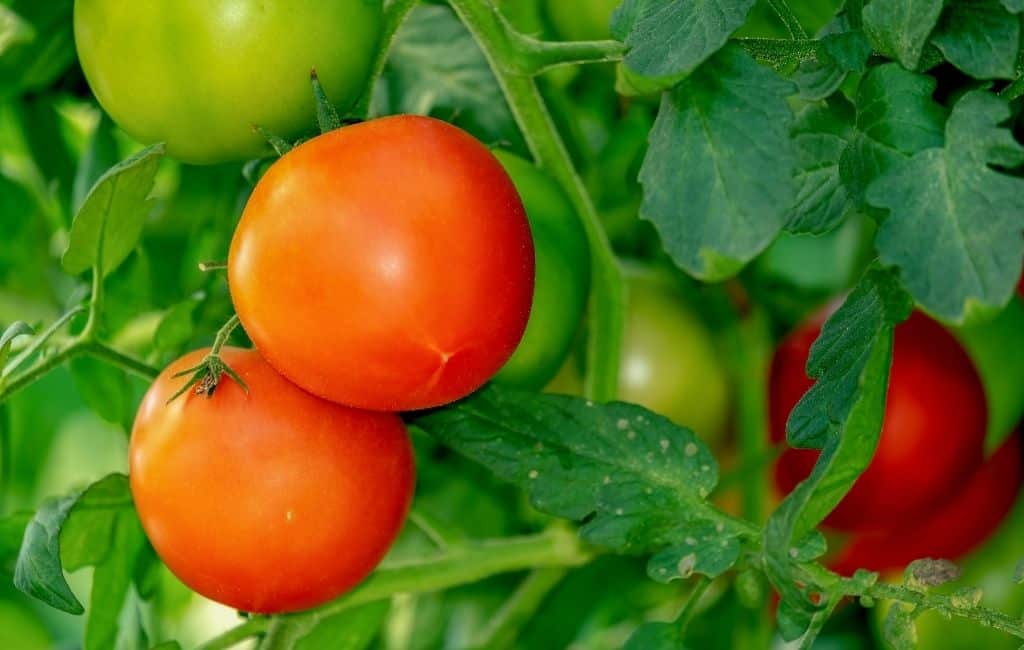
Gardening has become much more popular over the last couple of years, especially at the beginning of the pandemic when grocery stores had consistently low stock.
Growing your own food is something that was once commonplace. During the depression, folks were encouraged to grow their own vegetable gardens and have backyard chickens in order to ensure they didn’t go hungry.
It’s not necessarily less expensive to garden these days considering the wide availability of all kinds of produce, but it’s a great way to have extra-fresh and nutritious food more readily available.
Gardening can increase your self-sufficiency, but it’s also a great way to stay healthy and focus on more seasonal eating. Produce picked during its season is fresher, tastier, and more nutritious.
Food Preservation

There are several different ways to preserve food. Even if you do not have a garden, you can practice these same methods to preserve produce (and even meat!) purchased from local farms or even from your grocery store.
Canning
Canning is the first thing I think of when I think of food preservation. There are a few different methods for canning, including water-bath canning, atmospheric steam canning, and pressure-canning. I’m planning to tackle this skill in the next year or two as I grow our little container garden, and I can’t wait to get started!
I have many fond memories of my grandmother’s home canned veggies, but I also know that canning safety practices have been updated quite a bit since Grammy’s canning days. To ensure that you are following best safety practices visit the USDA’s Complete Guide to Home Canning. The last thing we want is to give our family Botulism in an effort to provide healthy homemade goods!
Dehydration
Dehydration is another method of food preservation. You can do it the old-fashioned way by putting it out in the sun, but that may not yield the quickest results. Other methods include dehydrating in the oven or microwave (herbs only), air-drying, and using electric dehydrators.
Electric dehydrators can be expensive, but if you are looking to get started with an easy, straightforward method for dehydrating food you can look at this budget-friendly dehydrator.
Fermentation
Not only can fermentation help preserve your food, but it also has a host of other benefits including improving your gut health! The good bacteria (“probiotics”) found in fermented foods are always beneficial, and eating things like yogurt, pickles, and sourdough bread is great for your gut.
Cold Storage
This might be the most old-fashioned way of preserving food. You can keep food from spoiling for months by storing it in a cool, moderately humid space in your home. Root cellars are the most common example of cold storage.
For those of us who don’t have root cellars, a cooler space in a basement that keeps a steady temperature through the year can work well. Some warmer weather crops can preserve well at as high a temperature as 55 degrees fahrenheit, so you may be able to make your space work!
Freezing
This is probably the most widely used method of food preservation. You can keep fruits, veggies, bread, and meat fresh for longer by storing them in the freezer. It’s a great way to preserve food with minimal effort!
Reducing Waste
During World War II, the War Advertising Council coined the saying “Use it up, wear it out, make it do, or do without.” Resources were scarce, and the hope was to conserve what resources they had and keep prices down by preventing higher demand.
In pioneer days waste was dangerous. Survival depended on conserving all the resources people had at their disposal. While we may not have all the same reasons for “wasting not” today, we still have plenty of motivation to do so. We can protect our environment, cut down on spending, and reduce overwhelm by limiting the waste in our homes. This homemaking skill is worth the effort!
Creating a Schedule
When I think of a homemaking schedule, I think of Caroline Ingalls in “Little House in the Big Woods.” I’m sure many of you know what I’m talking about. Just in case you don’t have it perfectly memorized, take a look here:
- Monday – Wash
- Tuesday – Iron
- Wednesday – Mend
- Thursday – Churn
- Friday – Clean
- Saturday – Bake
- Sunday – Rest
I am guilty of romanticizing the good old days, but churning butter all day on a Thursday doesn’t really sound appealing. I can just feel my back aching!
Even though churning was a fairly major time commitment, it likely didn’t take all day. There were probably other chores that Ma Ingalls did each of these days, like make the beds, make dinner, take care of the kids…you get the idea. There were larger jobs that had to be done in the household that belonged to certain days. It gave the whole system a rhythm and a way to ensure nothing was forgotten.
This is, to my mind, the best way to plan. Have a SIMPLE, flexible routine that accounts for everything that needs to be done. Especially if you’re not a stay at home mom, you may feel a little overwhelmed.
Involve family members in keeping the house clean and under control. And make sure your schedule has breathing room in case life happens. Because it always does!
Sewing and Mending

Sewing is a vintage homemaking skill I am sad to say I do not have yet. While making your own clothes and quilts may not be a money saver, there is something special about covering your babies in the quilts their grandma made for them. Dressing them in the clothes you poured your love and time into is a precious gift.
Even though sewing your own clothes may not save you money, learning to mend and alter clothing is seriously valuable. I am on the short side, and I have often been frustrated that I can’t hem my own pants. My kids are always ripping and tearing toys and clothes, and being able to fix them would save money – and occasionally little broken hearts!
Knitting and crocheting

What is more wonderfully old-fashioned than sitting in a wooden rocker with your knitting needles clicking away?
I used to think of knitting and crocheting as being “less than” more practical skills like sewing. As I’ve thought more about how life was back in the olden days, however, I realize this skill was essential.
People would raise animals for their fibers, spin wool, and make blankets, sweaters, hats, and mittens that would keep them warm during cold months. See? Important!!
Not only can you potentially save some on your heating bill by snuggling under your homemade afghan, you can make homemade gifts for loved ones. Think sweaters, hats, scarves, mittens…how much better to be able to say you made them yourself?
Basic repair skills
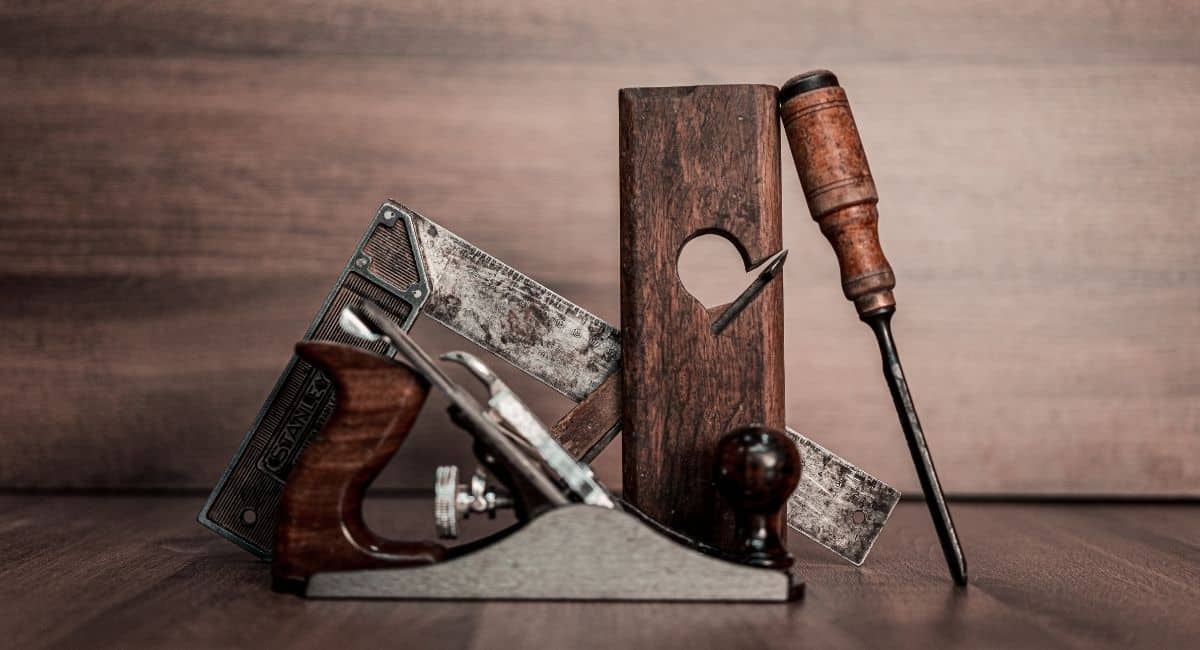
Whether it’s patching the wall for a paint job or repairing your home’s furnace, any repair skills you have can be invaluable in the care of a home. There was a time when everyone built their own homes. They had the life skills they needed to maintain them as well.
These days most of us hire out the majority of the work to be done around the house, but imagine the money we could save if we knew how to do it ourselves.
Get Organized
Organization is essentially having a place for every last thing in your possession. I am a compulsive organizer because my mind tends toward being scattered. Organizing my thoughts and my belongings gives me a false sense of control over my life. Healthy, right?
But in all seriousness, organization can truly allow for greater mental clarity and save lots of unnecessary time looking for lost keys, wallets, glasses…children…
Kidding! I’ve never lost my children in the mess. 🙂 But having these wonderful little people in my life has made it much more challenging when the “stuff” begins to outnumber the places where it belongs. This makes it one of my most essential homemaking skills for keeping my life under control!
Minimalism is the new trendy thing, especially since Marie Kondo’s books and her show “Tidying Up” have risen in popularity. But it’s been around for much longer than Marie Kondo. In its essence, it’s about owning fewer possessions. It gives us less inventory to manage and helps us to think two and three times before making unnecessary purchases.
It helps us to focus more on the people in our lives instead of the things in our lives. In my own life, it’s a reflective practice in cultivating gratitude for all I’ve been given. It doesn’t have to be done to the nth degree to benefit your life in lots of ways. The good news is, it can also have a great impact on your bank account!
Cleaning

Again, cleaning is one of the things everyone knows how to do, right? We all probably know how to get out a rag and wipe down the bathroom sink or mop the kitchen floor. Still, we aren’t all good at keeping our homes clean.
My favorite system for cleaning my house is a weekly schedule I created that incorporates daily, weekly, and monthly chores. I split them into manageable daily task lists. My daily cleaning tasks never feel overwhelming, and at the end of a month my house looks like I’ve just done Spring Cleaning!
The other trick I’ve learned is occasionally deciding to live with the mess. As much as I want to live up to Marilla Cuthbert’s standard of housekeeping, I am a working mom of young children, and I don’t have time for everything. And that’s okay!
If you want to get fancy you can look into making your own cleaning products. This is especially good if you want to save money and avoid toxins that are in many everyday cleaning products. I’m an old-fashioned baking soda and vinegar girl myself. There’s not much that can’t be cleaned well and thoroughly with just baking soda and vinegar!
Laundry

Hang on, doesn’t everyone know how to do laundry? Well actually no, there are a handful of people who don’t know how to use a washer and dryer. But that’s not really what I’m talking about. I do laundry regularly. Sometimes it feels like I do it constantly.
Even though I’m well-versed in the basic use of a washer and dryer, I still run into issues with mysterious stains. Maybe I didn’t realize there were crayons in my son’s pocket, or perhaps I accidentally dropped my shirt in a puddle of grease. These issues come up with just about everyone, so it’s always good to know how to treat stains and keep all your clothes in good shape.
We don’t have to use washboards anymore, so laundry can be quick and easy. But if you want to do it the old fashioned way without the elbow grease, try hanging your clothes out to dry! It saves a little extra electricity, and your clothes smell clean and fresh after swinging in the breeze.
Household Accounting
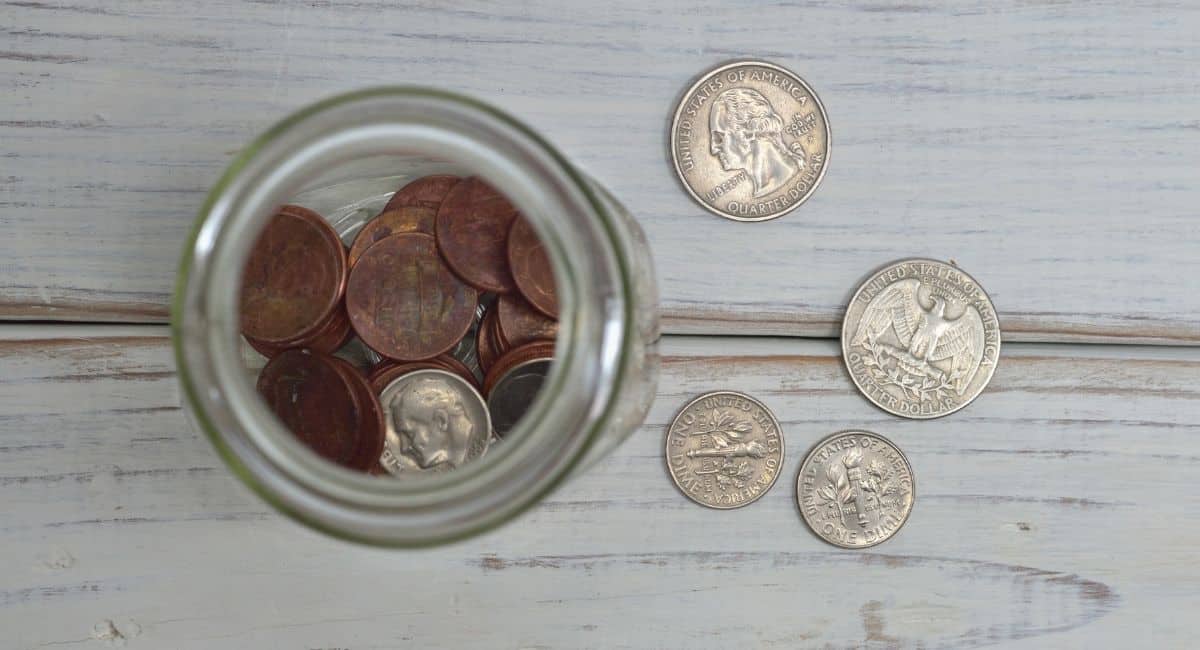
In our family, I do most of the paperwork with our budgets because I like making numbers balance. The last thing my husband wants to do is balance the checkbook. But we meet together regularly to discuss our spending and to make plans and set goals together.
Budgeting and accounting are important homemaking skills to brush up on to keep your family’s goals a priority.
Budgeting should be about more than just adding up what’s already happened to find out how much money you did or didn’t spend. It should give you the power to reach your family’s goals!
If you want to buy a house, you can set a budget and see how long it will take you to save for your down payment. With that goal in mind, it will be easier for you to deny yourself the extra expenditures when you remember WHY you’re sticking to your budget. Don’t just set a budget, follow it!
Budgeting also arms you with important information. Should you be earning more to cover necessary expenses? Could you afford to work less and spend more time with your family if you just tightened your belt a bit? Do you have more debt than you realized? Do you need to take extreme measures to make sure you don’t wind up in financial trouble?
Information is powerful, and when household accounting is done well and responsibly, peace and freedom follow.
Self-Care
Why is this on the list? Is self-care even really a homemaking skill? I would argue that it is. I’m still not very good at it. I have become convinced in the last couple of years that it is an absolutely necessary skill for all people, not just homemakers, to develop and master.
We need to be at our best in order to do our best work. Whether we have an important job outside the home or stay home with our kids, we have to be healthy and well to serve others well. It’s NOT selfish to protect your health.
Decorating

I always used to think of decorating as essentially shallow, and I felt guilty whenever I invested money or time to make things pretty. I actually still think that way most of the time, and it’s hard for me to invest in things that aren’t essential needs.
It’s true we don’t need that fancy chair in order to feed our kids. A roof over our heads will keep the rain off whether there are beautiful exposed beams or not. But I would argue that doesn’t make it unimportant.
There’s a reason so many of us feel the pull to make our homes beautiful. It impacts how we feel in our homes and it makes our families comfortable. It becomes a problem when we’re spending all our money or going into debt to buy the most expensive items.
Lovingly decorating your home, however, makes it a space your family loves to be in AND look at. And that makes it not only good, but practical.
My own view of the importance of decorating my home is well expressed in this quote by Edith Schaeffer in The Hidden Art of Homemaking: “If you have been afraid that your love of beautiful flowers and the flickering flame of the candle is somehow less spiritual than living in starkness and ugliness, remember that He who created you to be creative gave you the things with which to make beauty and the sensitivity to appreciate and respond to His creation.”
Hospitality
When people think of hospitality these days, we tend to think of hosting dinner parties or get-togethers. We clean obsessively before these events to make sure that our lives appear to advantage when we welcome people into our homes.
Someone told me once that true hospitality is a spirit of welcome no matter what our home looks like. There is less hospitality in our hearts when we refuse to invite others into our mess and reveal only what we want them to see.
Don’t wait until you’re perfectly clean and decorated to invite others in. Share your lives with them now and let your home be a blessing to others.
Why “Old-fashioned” Homemaking?
Why do things the old-fashioned way? Sure, it’s very romantic to fancy that you’re just like Caroline Ingalls or Anne Shirley as you wash dishes by hand and use your washboard by the pump in the backyard. But is that practical? Especially now, when few families can afford to have someone stay home full time?
Our modern conveniences are something to be thankful for. They help to expedite necessary processes so that we don’t need to spend so much time on everyday chores. This is a significant gift for those homemakers who have part-time or even full-time jobs in addition to the care of their home.
But somewhere along the way, homemakers became consumers instead of producers. We have become disconnected from our food, our homes, and the processes which ground us and connect us with life.
While I wouldn’t advocate rejecting all modern household conveniences, I would say it’s important to reconnect and dive a little deeper and remember why homemaking has historically been so important and valuable.
In an age where we are focused on being efficient and convenient, we often forget the importance of participating in the process. Washing my dishes by hand is relaxing and therapeutic for me, and it protects my dishes from unnecessary wear and tear. Growing some veggies on our balcony helps my kids learn where our food comes from. Making food from scratch allows me to better nourish my family’s health.
I did not write this list to overwhelm or discourage anyone. If these skills feel like they would only add more to an already full plate, then now is not the right season. I’ve gone through those seasons myself!
But if this list inspired you to slow down and chase that good old-fashioned lifestyle, choose one or two from this list of traditional homemaking skills to develop this year. I hope you’ll be thankful you did!
Do you feel inspired by all things old-fashioned? Would you like to hear more about being an old-fashioned homemaker and simple from-scratch meal inspiration? Sign up for my email list! And welcome to the family. 🙂



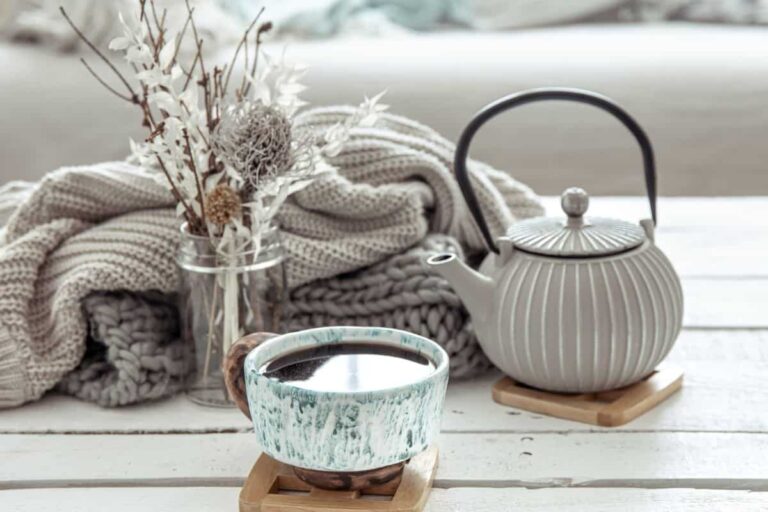


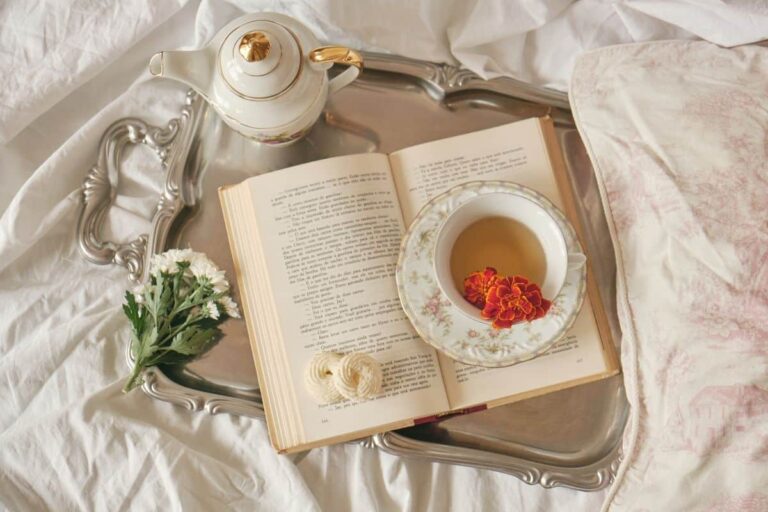

Love all these tips! This is how I grew up- and you’re making me think about what I can implement for my own family!
I decided I’d had enough of the 21st century, and although I still read Pinterest and have an email, that’s about it for technology for me.
Apart from my phone, I threw out all other technology.
Suddenly there was absolute quiet in my home. It is BLISS.
Peace had been restored in my home and in my heart.
I love the 1930s/40s, so my home is decorated that way, and my lifestyle revolves around that time. Being a home maker and just enjoying my own time to bake and sew and care for my home and family has brought me so happiness and fulfilment. Im so glad I took the plunge.
I love my old fashioned life.
Julie, thanks for stopping by and sharing your story! My heart lives all the way back in the 1800s myself. I can say, though, that I’m enormously thankful for indoor plumbing! Limiting technology is a powerful way to re-connect, both with the people we love and with all the other rich and wholesome things we abandon for the siren call of the screen. Technology is a wonderful blessing, but it’s so important we utilize it and don’t let it control us!
Hi Claire! Thanks for stopping by. I’m so glad this was helpful – good luck trying some of these out with your family!